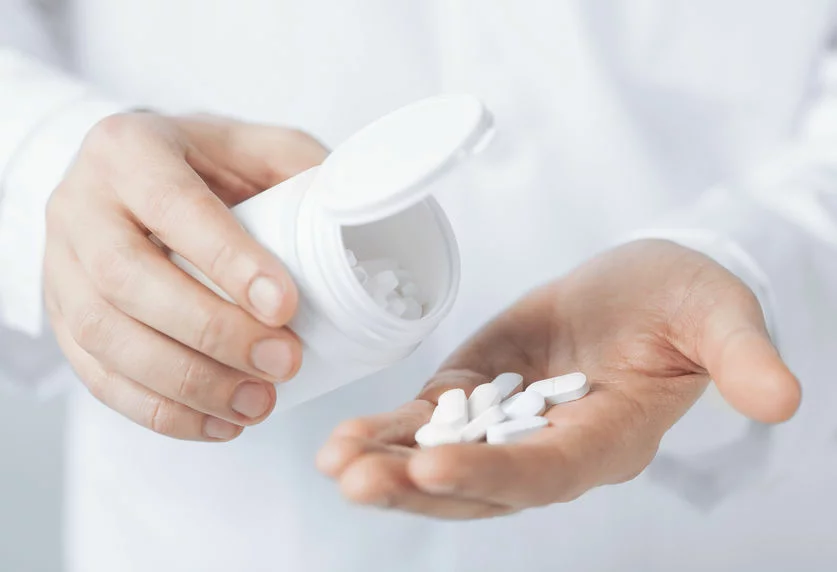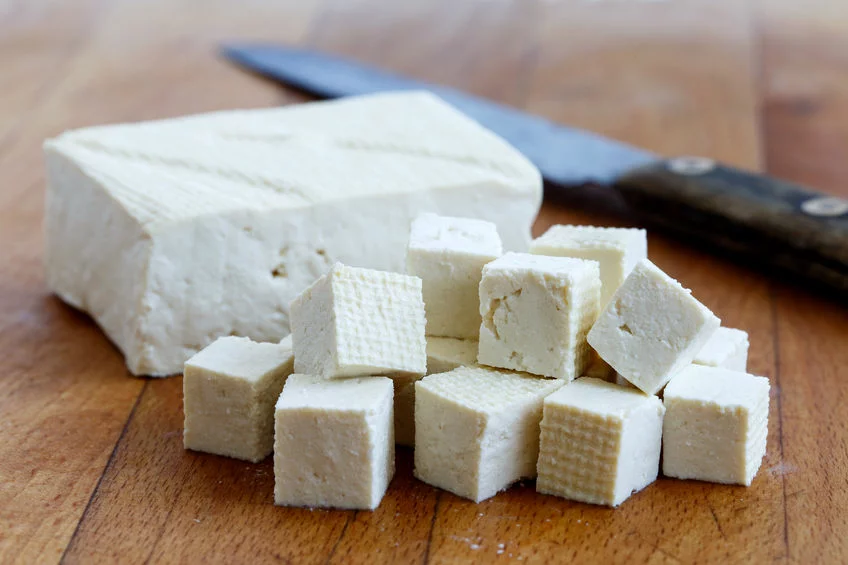Unless you have been living on a remote island, you have probably heard about the new protein fad that has taken the keto scene by storm. Collagen is the new buzz word among keto dieters. Many people have been singing praises about the bone broth bars and collagen supplements popping up on the market all around the globe. But what is all the fuss? Is collagen essential for keto dieters and is it necessary to take it in supplement form?
Here is what you need to know.
What Is Collagen?
Collagen is the most abundant form of protein found in the body. In fact, it accounts for almost 30% of the body’s entire protein content. The word collagen is derived from the French word ‘collagène’, which directly translates to ‘glue forming’. This protein’s name couldn’t be more on point because it is the main source of protein found in connective tissues like tendons, cartilage, bones, and skin. Everything that connects and holds our bodies together. There are various types of collagen found in the body, but the most common ones are:
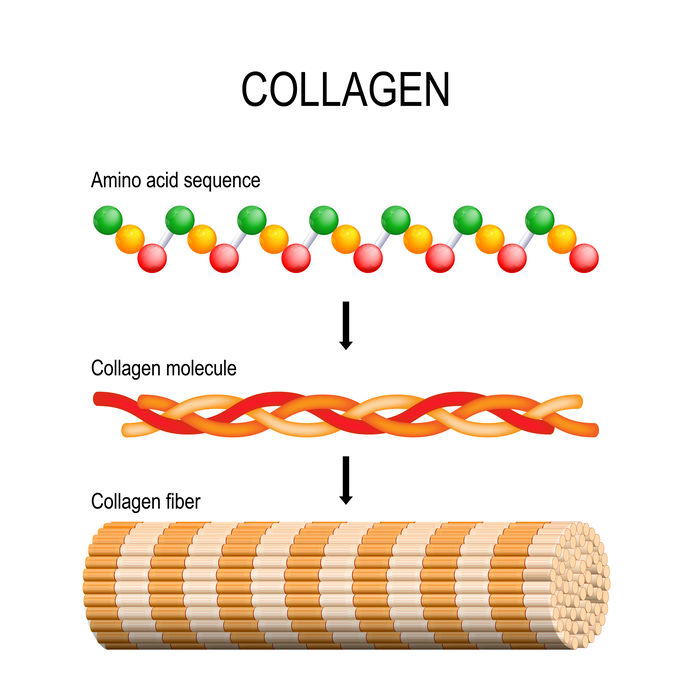
- Collagen Type I – This type of collagen is the most abundant in the body. It is fibrillar in structure and found in connective tissue, bones, skin, and tendons. Collagen I plays a vital role in healing wounds, improving elasticity in the skin, and rebuilding muscle.
- Collagen Type II – Most of the proteins found in the cartilage and protective tissues around the joints, spine, bones, and eyes are made up of this type of collagen.
- Collagen Type III – Large quantities of collagen type III are found in the blood vessels, muscles, intestines, and uterus. It plays a key role in the proper function of arteries and the heart.
Collagen is a protein, but it does not have the same properties as other common types of proteins such as casein, fish, meat, or whey. While every protein is made up of amino acids, it doesn’t trigger the same response in the body. Simply put, the amino acid composition of collagen provides unique benefits that proteins such as fish and meat cannot match. Whether you are following a keto diet, or any diet at all, it is very important to include collagen in our meals to replenish skin cells, strengthen, support, and quite literally hold our body together.
The body is able to generate its own collagen from the proteins we eat, but as we age, the body becomes slack and does not produce the same levels of collagen. Other factors like stress, overexposure to the sun, and poor diet can slow down collagen production.
Is Collagen Beneficial For Keto Dieters?
Before we had fancy collagen creams, pills, and elixirs, our prehistoric ancestors were fueling up on collagen the old fashioned way. By eating the hooves, skin, bones, cartilage and connective tissues of animals. It might not seem very appealing to eat almost every part of an animal today, but it is still very important to include collagen dense foods in our diet for many reasons.
Some of the general benefits of eating collagen include:
- Improving skin health and maintaining elasticity.
- Managing inflammation in the joints and reducing the risk of osteoarthritis.
- Increasing bone mass density and improving bone strength.
- Preventing heart disease.
- Reducing the risk of Alzheimer’s disease.
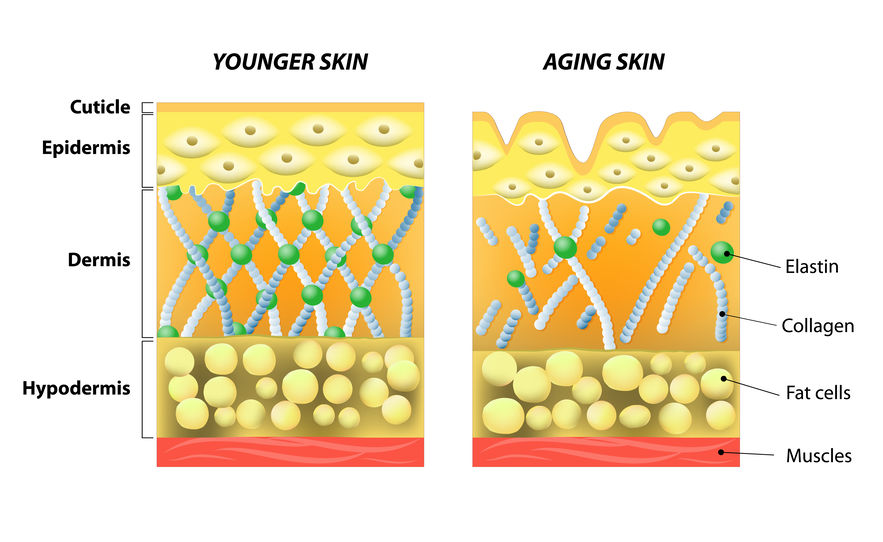
Other than these amazing health benefits, eating collagen on a keto diet can increase the chance of reaching your weight loss goals. Here’s why:
Collagen Increases Satiety
There have been many studies conducted on the effects of protein and weight loss. Some studies reveal that the peptides found in collagen have an effect on regulating lipid metabolism and suppressing fat accumulation. The distinctive amino acid composition has also been found to increase satiety and suppress hunger for longer periods of time in comparison to other protein counterparts. By including collagen in a keto meal, you won’t be taking in as many calories because you will feel fuller much quicker.
Collagen Helps To Retain Muscle Mass and Improve Body Composition
As the keto diet starts to melt away the pounds, the composition of your body begins to change. Ideally, it’s the belly fat you want to burn away, not your muscles. Collagen helps to retain muscle mass during this transition. It also helps to increase the skin’s thickness and elasticity. As we lose weight, the excess skin starts to thin and sag, especially in older individuals. Including more collagen in your diet can help tighten the skin so that it ‘snaps’ back into place once you have lost weight.
Collagen Improves Gut Health
A healthy gut is the key to overall well being. Collagen helps to strengthen the gut lining, which in turn, helps with the absorption of nutrients. Collagen also helps to balance the microbiome by promoting healthy bacteria and reducing the accumulation of harmful pathogens and microorganisms that are responsible for many digestive issues. Diarrhea and constipation are common side effects of the keto flu and by eating collagen dense foods, it can help ward off these uncomfortable symptoms.
Are Keto Collagen Supplements Necessary?
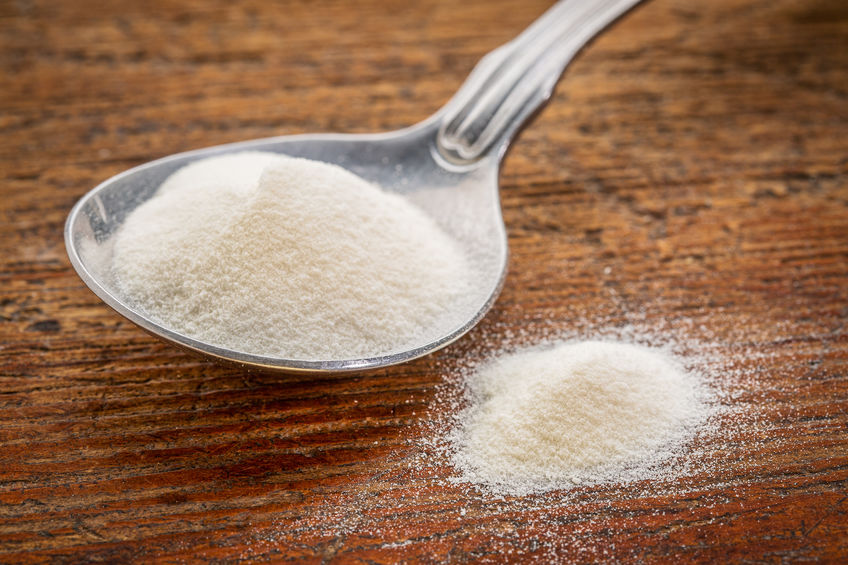
Hydrolyzed collagen supplements have become popular in the keto community. These supplements are made by hydrolyzing or breaking down the molecular bonds found in collagen that has been sourced from the bones and connective tissue of animals. Once the bonds have been broken down, it is then dried and pulverized to form a powder, which is then put into supplements. The hydrolysis process essentially turns collagen into smaller portions that are digested and absorbed by the body faster.
While these supplements are a convenient way of getting a boost of protein, it is not always necessary or recommended. As with most supplements found on the market today, manufacturers have a habit of using unnecessary fillers and binders to extend the shelf life of the product and to make the capsules or pills easier to swallow. Many of these fillers are usually sugars, starch, titanium dioxide, and hydroxypropyl methylcellulose. Some low-quality manufacturers source connective tissues from pigs, which has not been thoroughly researched yet and could pose a risk depending on how healthy the animal is. Some also source proteins from chickens, which is best to avoid altogether because of the risk of aviary disease contamination.
If the manufacturer does not have a long-standing reputation in the supplement industry or does not have clinical studies and reviews to back up their claims, then it’s best to look for one that does or turn to organic collagen dense foods instead.
How To Add More Collagen To A Keto Diet
There are many other ways to increase your intake of collagen without powders, creams, or elixirs. Just turn to nature!
These are a few foods that can help boost collagen levels in the body:

- Home-cooked bone broth made from poultry or beef
- Leafy greens such as broccoli, spinach, and kale
- Blueberries, blackberries, and raspberries
- Garlic
- Egg whites
- Cashews
- Bell peppers
- Tomatoes
Is Collagen A Keto Essential Or Just Another Fad?
Collagen is vital to our overall health and wellbeing. This form of protein plays a crucial role in maintaining muscle and bone mass, protecting our bones, maintaining connective tissue, and strengthening joints. As we get older, our body produces less collagen, which is why it is important to replenish it by eating collagen dense foods. Eating collagen is also beneficial for keto dieters because it suppresses hunger, replenishes the skin’s elasticity, and helps to maintain muscle mass during weight loss. While keto collagen supplements are convenient and beneficial for some, it’s important to research the manufacturer and avoid formulas that use low quality meat and have added binders and fillers. However, taking a collagen supplement is not always necessary. There are many foods that offer the same properties such as bell peppers, bone broth, garlic, and cashews.
Do you want to find an effective Keto treatment? Check out our top rated Keto products









